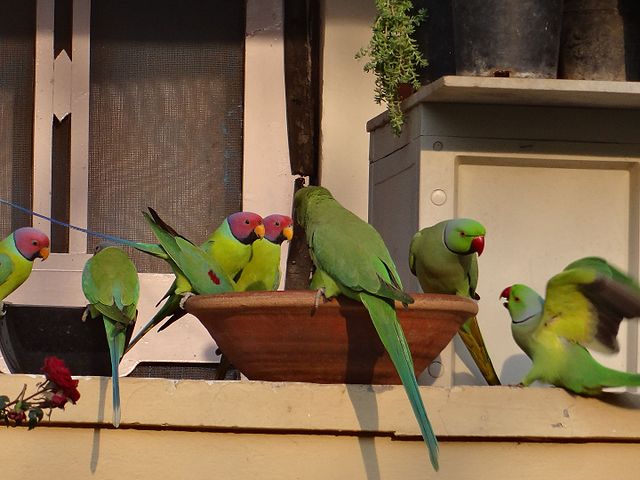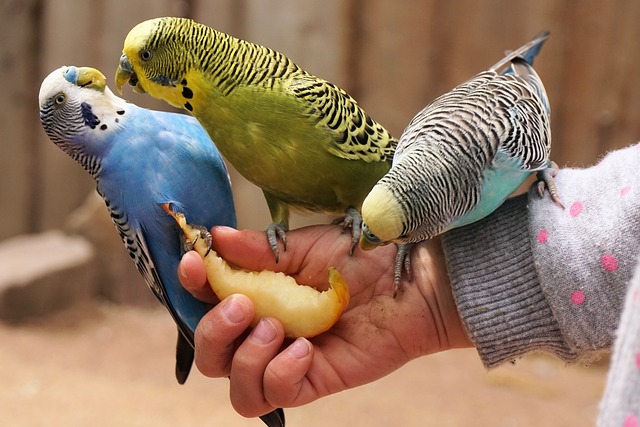For the owner who lives in an apartment or condo and has limited space, the parakeet, or budgie, might be a perfect choice for an avian companion. Their vocalizations don’t tend to travel through walls, their cages are small and affordable, and a bite won’t send you to the emergency room.
However, despite their tiny stature, a parakeet requires the same level of care and commitment as would a macaw, just scaled down to size. While they don’t live for 50+ years, a fact many parakeet owners regret, they require daily care and maintenance in order to remain healthy and friendly. Your parakeet could be with you for 10-15 years if you take your duties seriously.
Parakeet Diet
Many people make a mistake in believing that small birds only eat seeds. In fact, you may have been told that when you purchased your parakeet. That information is wrong and will lead to health problems because your bird’s dietary needs are not being met. All animals need the nutritional advantages of fresh fruits and vegetables, grains, and legumes. The parakeet is no different. Additionally, your bird will need a healthy, organic pellet and fresh water changed at least once daily and served in clean dishes.

Bathing
Parakeets love to bathe. Some prefer a misting with a spray bottle, others enjoy a good soak in the “tub” when you offer them a shallow bowl of water. In the wild, parakeets like to roll around in the grass after a rain shower. In our homes, many parakeets will appreciate a bowl of wet greens, such as parsley, to crawl around in. Your parakeet will need to bathe 2-3 times a week, and more often if it prefers.
Parakeet Health
A bird’s physiology is completely different from that of our cats and dogs and you will want to have an avian vet on hand for your parakeet’s health maintenance and in the event of an illness or emergency. Your bird should see the vet once a year for a “well-bird exam” – the avian equivalent of a yearly check-up, to be sure his overall health and diet are on track.

As an owner, your greatest advantage to continued good health is your gram scale. Weight loss is an indicator of illness and when you weigh your bird frequently (and record the results in a journal), you will be able to catch a problem before it escalates into a serious matter for your bird and save money on exorbitant vet bills.
You can tell if a budgie is healthy by looking at his tail. It is firm when he is well and droops when he is ill. Budgies are liable to stress and can suffer a heart attack if a cat so much jumps up in the cage.
They are also prone to draughts – when a budgie is ill, the best thing to do is keep it warm.
Other indicators of illness are abnormal droppings. If they change in color, consistency, or frequency or if an odor is present, and they remain that way for more than a day or two, you must call your vet for an appointment.
Other indications to alert you to illness in your parakeet are changes in physical appearance, drooping wings, perching at the bottom of the cage, loss of appetite, discharge from any orifice, fecal matter stuck to the underside, lack of vocalization, and inactivity.
Interactions with Parakeets
Your parakeet will be an important member of your home for many years to come and you are entirely responsible for its health and well-being, both physically AND mentally. He/she will grow to love you and will want to spend time with you and the rest of the family. Do be sure to allow a lot of out-of-cage time, in a safe environment, to keep your relationship thriving.
